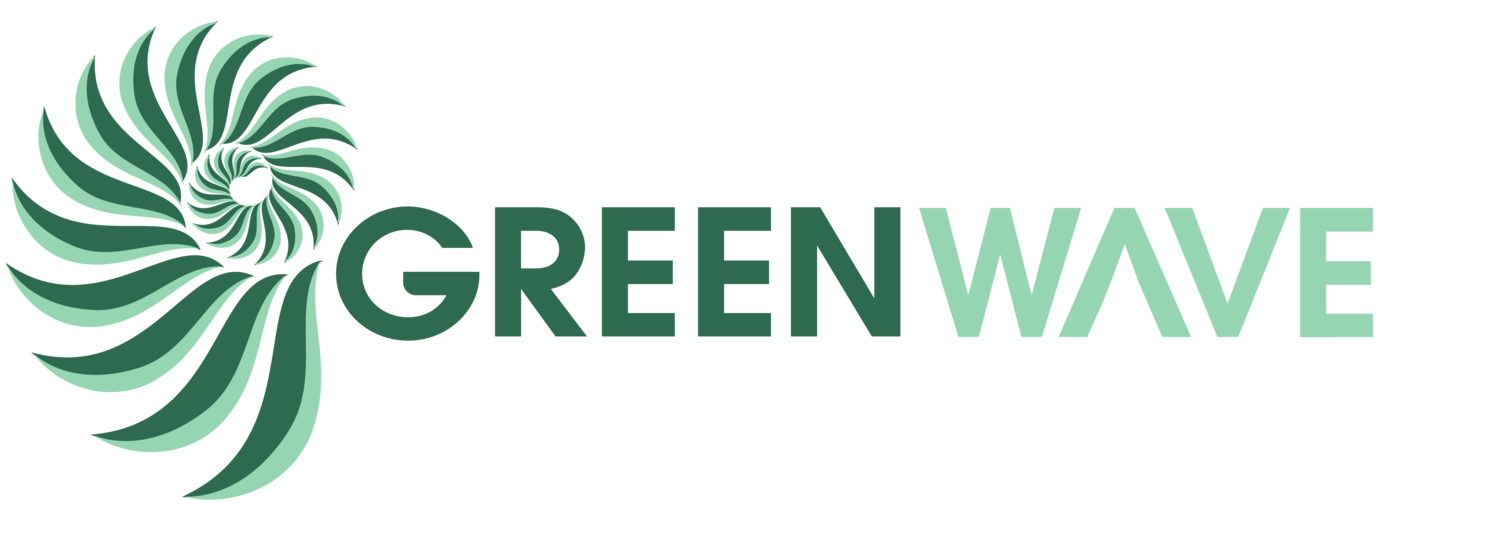BLOG
15th September 2025
Postdoctoral Research Fellow, Salen Schloffel-Armstrong writes in the Spinoff on the case for universal basic dental care.
You can read the article here
10th September 2025
PhD candidate, Angus Dowell writes a piece in The Conversation on the coalition government’s misleading use of Singapore and Ireland as models for New Zealand economic policy.
You can read the article here
31st July 2025
Professor Nick Lewis reflects on insights from his recent visit to the Institute of Australian Geographers Annual Conference, exploring major developments in regional industrial policy and examining the evolving role of universities in challenging times
You can read the article here
6th May 2025
2025 Nick Lewis gives keynote address on Rarotonga and appears on Cook Islands TV
Professor Nick Lewis will explore the potential of education in contemporary Cook Island nation building. National education systems have always been about nation building. But what does that mean in nations whose peoples are now spread far and wide, where societies and economies are no longer neatly bounded by island territories, and where transnational cultural ties and economic relationships have become increasingly determining of local fates and vice-versa. Nick will ask what this interdependency means for education in the Cook Islands, what role education might play in strengthening the imagined nation of Cook Islanders in the world, and why a vibrant culture is so central.
you can see the new’s piece here
23rd Feb 2025
2025 Mini-Symposium: Extra-state formation and the Big-Four
In mid-February, the project team hosted a mini-symposium for invited academic interlocutors and postgraduate students in the Ontology Lab, Science Building, University of Auckland, February 23-24, 2025. The symposium consisted of 12 presentations and two workshops. Team members gave presentations of draft papers, while invited interlocutors (Matt Scobie, Carolyn Morris, Max Harris, Cris Shore and Pauline McGuirk) commented on presentations and presented papers from their own aligned research. The symposium provided a rare opportunity in Aotearoa to present and develop ideas informally in the company of close colleagues and global research leaders. The event provided for commentary, constructive critique, and an opportunity to workshop ideas and research directions. The event was affirming of progress to date and reinforced the value of the research
You can read more about the presentations on our website here
7th Nov 2024
Nick Lewis gave his inaugural professorial address to a packed house in November
Abstract: Knowledge is always political. What knowledge we make and how we translate it are pivotal to the worlds we might make. That is why the public university is so important. A fierce critic of many of its directions of travel but an ever-hopeful defender of its possibilities, in this talk Nick argues that it must be fought for. The lecture traces a journey from fresh-faced immigrant to transdisciplinary scholar and committed citizen of the University of Auckland. Making meaning of what has been as much a privileged and fun-filled wandering as a career pathway, the talk is anchored to three current preoccupations: the demise of political economy and Geography in New Zealand; the rise of an anaemic conception of transdisciplinarity; and the rentierism of the current government. He reads these trends against the backdrop of challenges to the university from the position of a political economist and geographer within a Science Faculty. Much is to be made from this position of what it means to be labelled a social scientist. Much is to be done to fashion a future for Geography.You can read more about the presentations on our website here

14th Oct 2024
Jack Barrett writes in The Conversation on indigenous lead housing solutions in Aotearoa that are built through community and provide insights for addressing broader housing issues.
You can read the piece here
14th Oct 2024
Tom Baker publishes a piece in Newsroom on the Government’s plans to cut social sciences and humanities from NZ’s ‘blue skys’ research fund.
You can read the piece here
14th Oct 2024
PEP’s Nick Lewis authors a piece in Newsroom on the worrying lack of coherence and vision from the projects listed under the coalition government’s fast-track bill
You can check out the piece here
In other news, at the end of June 2024, Nick Lewis wound up his work on the Sustainable Seas National Science Challenge. This followed six months of frenzied public-facing in the initial months of 2024, including authoring a set of recommendations for Government on how to grow a blue economy in Aotearoa New Zealand (blue economy pathways), a presentation of this work to a public webinar, and presentations in outlining different potential pathways towards a blue economy for public and local and regional government audiences in 13 regional centres. Each regional visit involved multiple presentations to small groups delivered in a workshop format. See a taste of the presentations here
You can find more information at the project here
1st Oct 2024
PEP’s Tom Baker co-authors a piece in The Conversation on how Michael Bloomberg uses philanthropy to change the way cities are run
You can check out the piece here
9th Aug 2024
Angus Dowell argues the rise of cloud computing monopolies is creating the kinds of systemic vulnerabilities responsible for the global CrowdStrike software failure.
Angus argues there are lessons to be learned from drawing connections between the Crowdstrike crash and the systemic failure of our financial institutions during the 2008 financial crisis.
You can check out the piece here
1st Aug 2024
Salene Schloffel-Armstrong writes on Auckland Council’s immanent vote on whether to outsource the management of 22 of its pools and leisure centres to the private sector. She argues for their importance as key sites of social infrastructure in our cities
Check out the piece here
31st Aug 2024
Chris McMillan explores the political dimensions of the Olympics in the context of global warming and Aotearoa’s awkward place within it.
Check out the piece here


15th March 2024
Professor Nick Lewis discusses the national government’s fast-track regime and how ministers might extract from it a higher price for access to national resources and natural monopolies
Nick was also interviewed on 95BFM and Waatea FM.
Check out the piece here
8th March 2024
Angus Dowell explores if the delay in construction of Amazon Web Services’ hyperscale data centre offers an opportunity to build healthier relations with cloud providers for Aotearoa’s Sovereignty
Check out the piece here
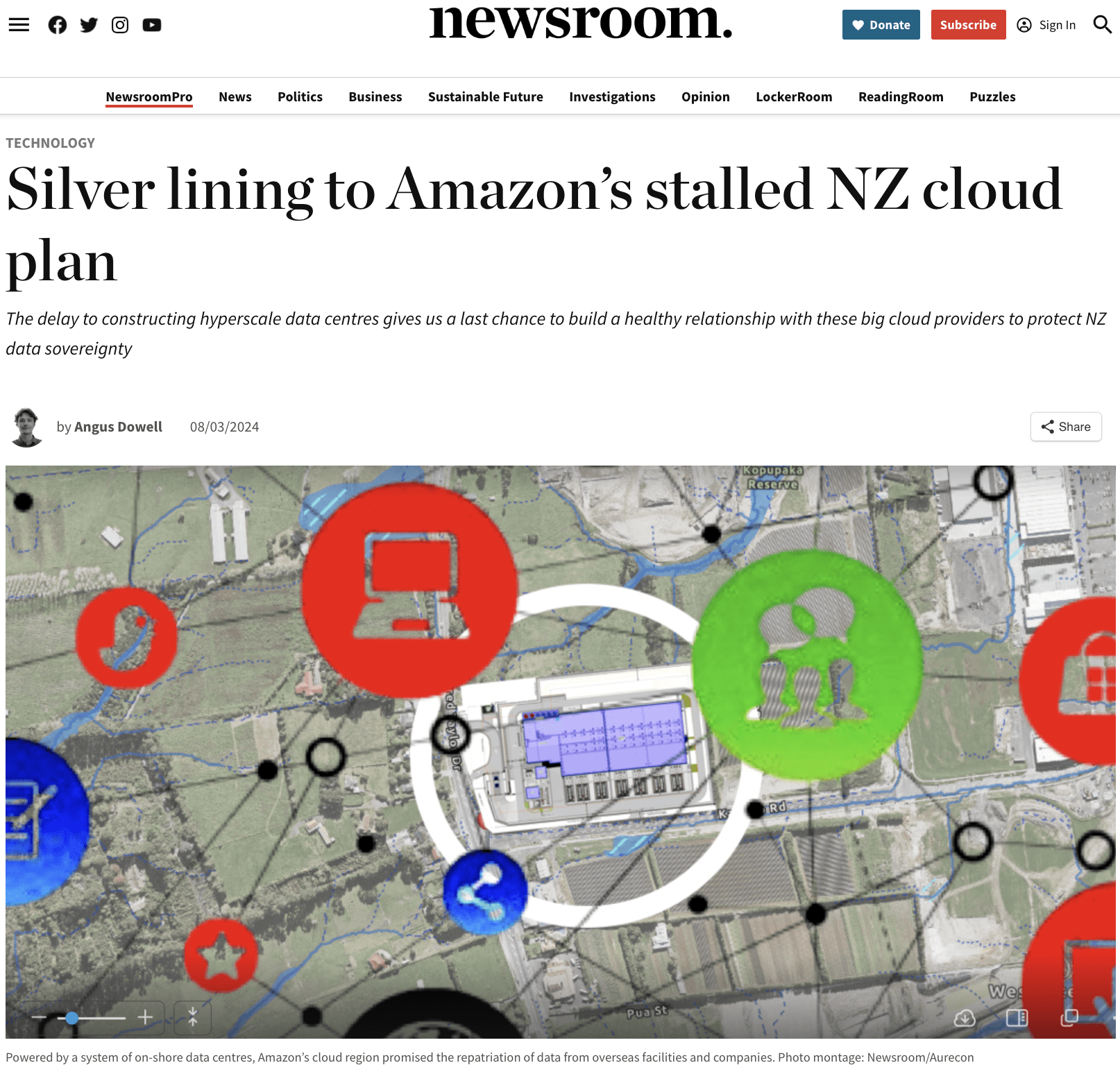
5th Feb 2024
As the new government looks to cut costs, Salene Schloffel-Amstrong writes in NewsRoom on the importance of local public services
Her article discusses the important roles of local public services, and libraries in particular, as the new government lookss to make funding cuts. As battle lines are drawn, Salene suggests ways that we might centre the significant role of local public services more openly in public debate, and embrace the political potential of local pubilc service spaces to grow. The piece can be found here
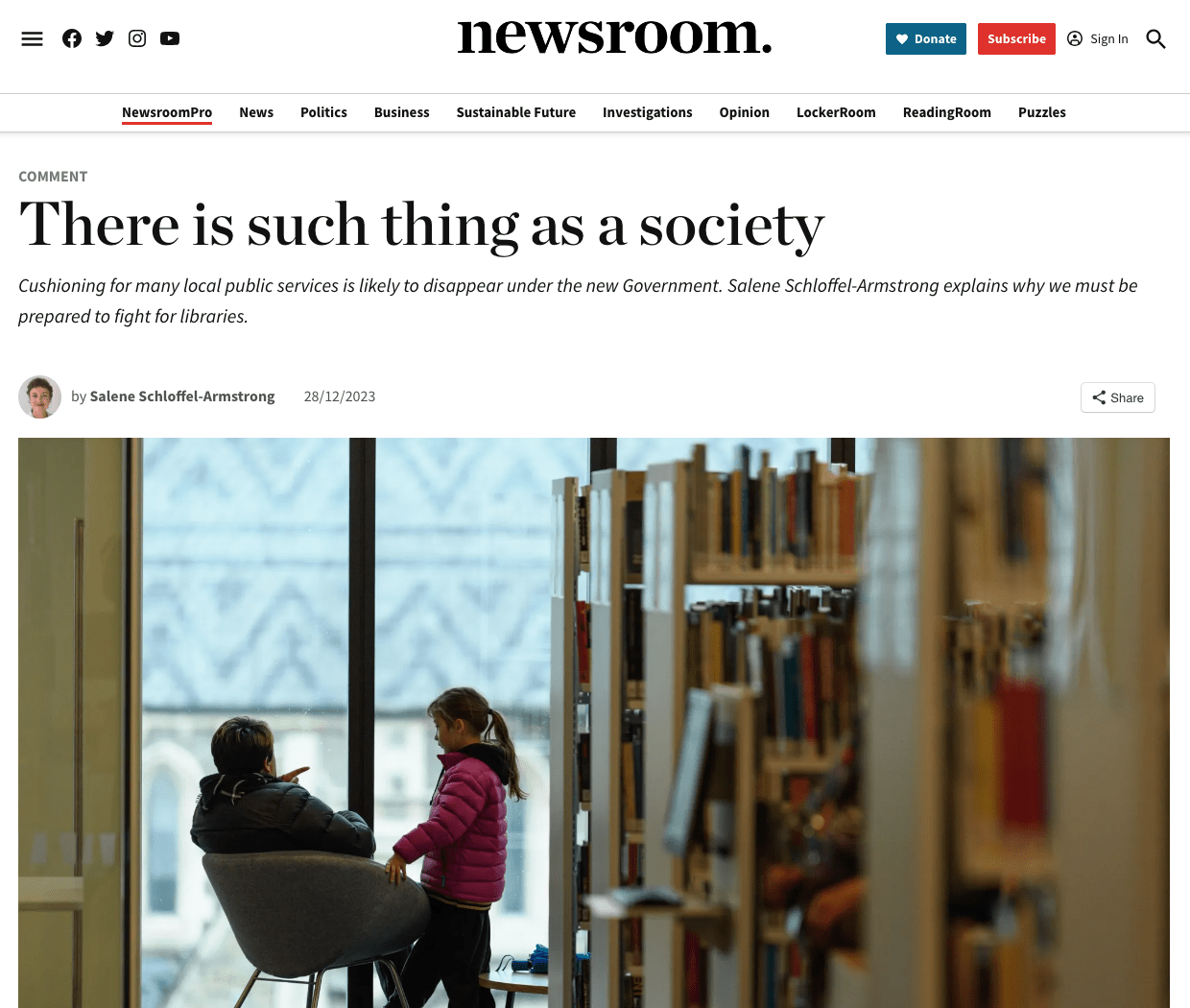
25th Jan 2024
Chris McMillan publishes an article in The Conversation on the future of cricket in climate-changing world.
Chris considers the role of cricket in the poliitcs of climate activism and challenges New Zealand Cricket to “get some sustainability runs on the board”. The piece can be found here
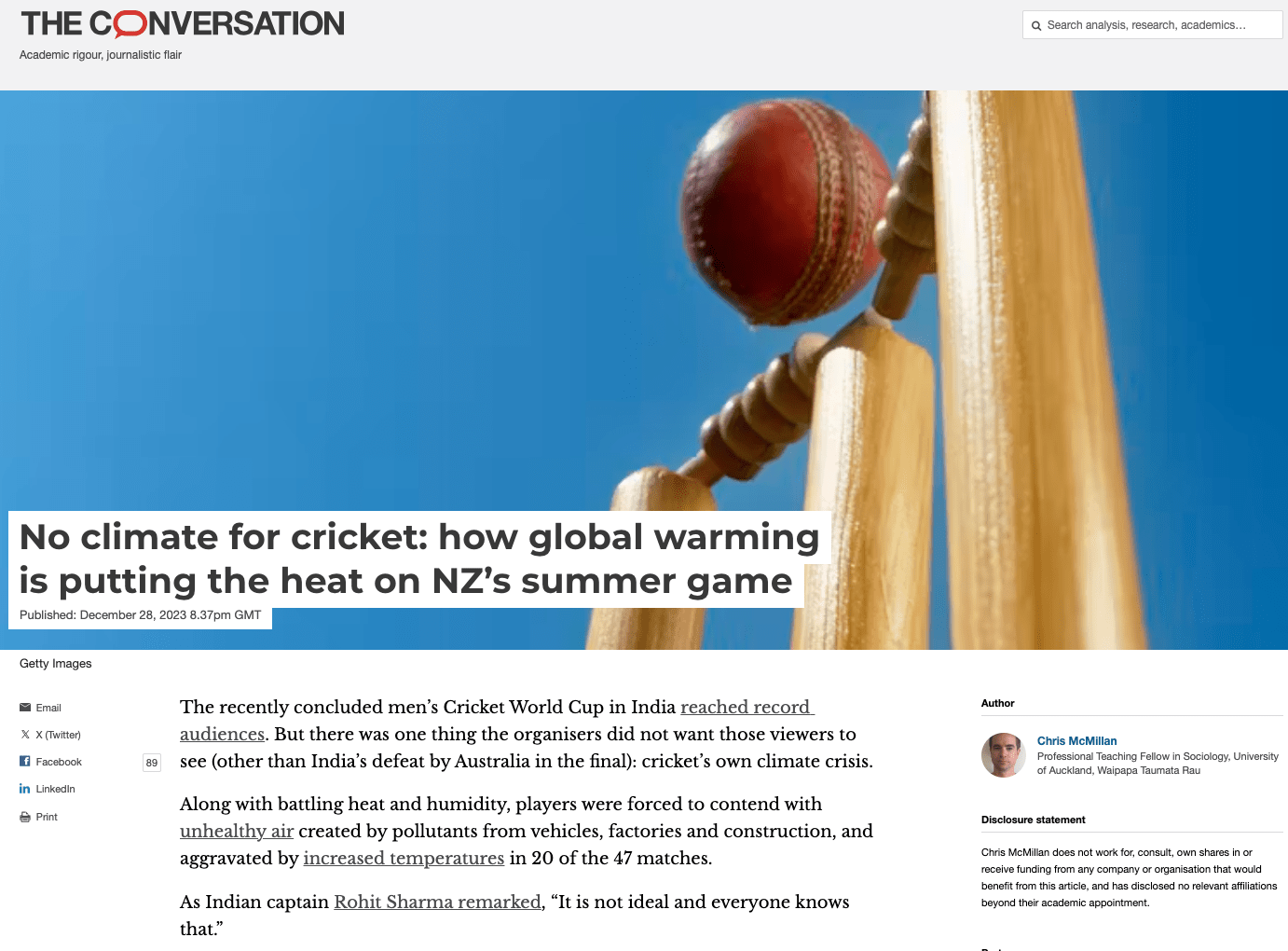
6th Dec 2023
Tom Baker writes in The Conversation on the coalition government’s social investment approach to public services, and a second co-authored piece on the challenges and opportunities in the rise of innovation in local government
The first piece can be found here
The second piece can be found here
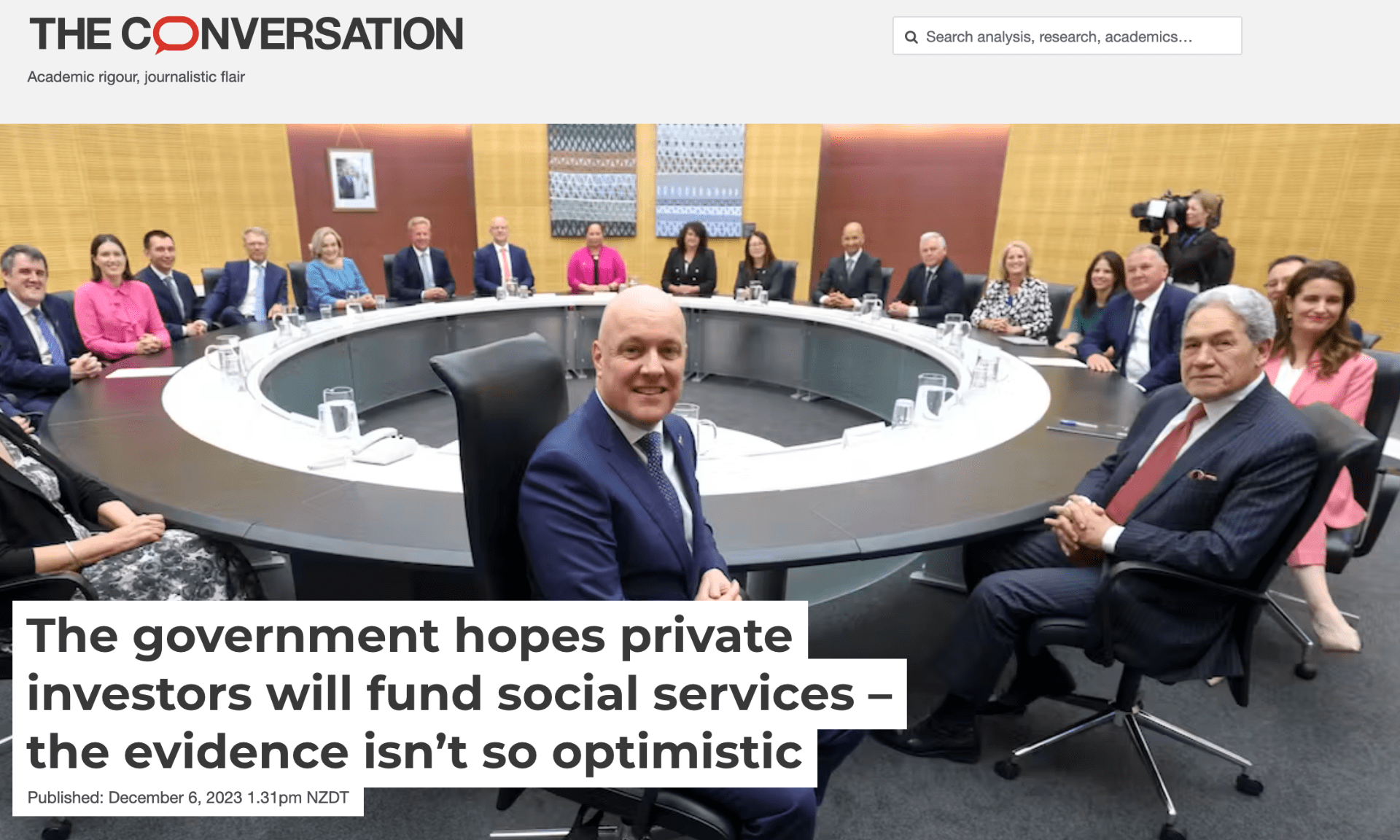
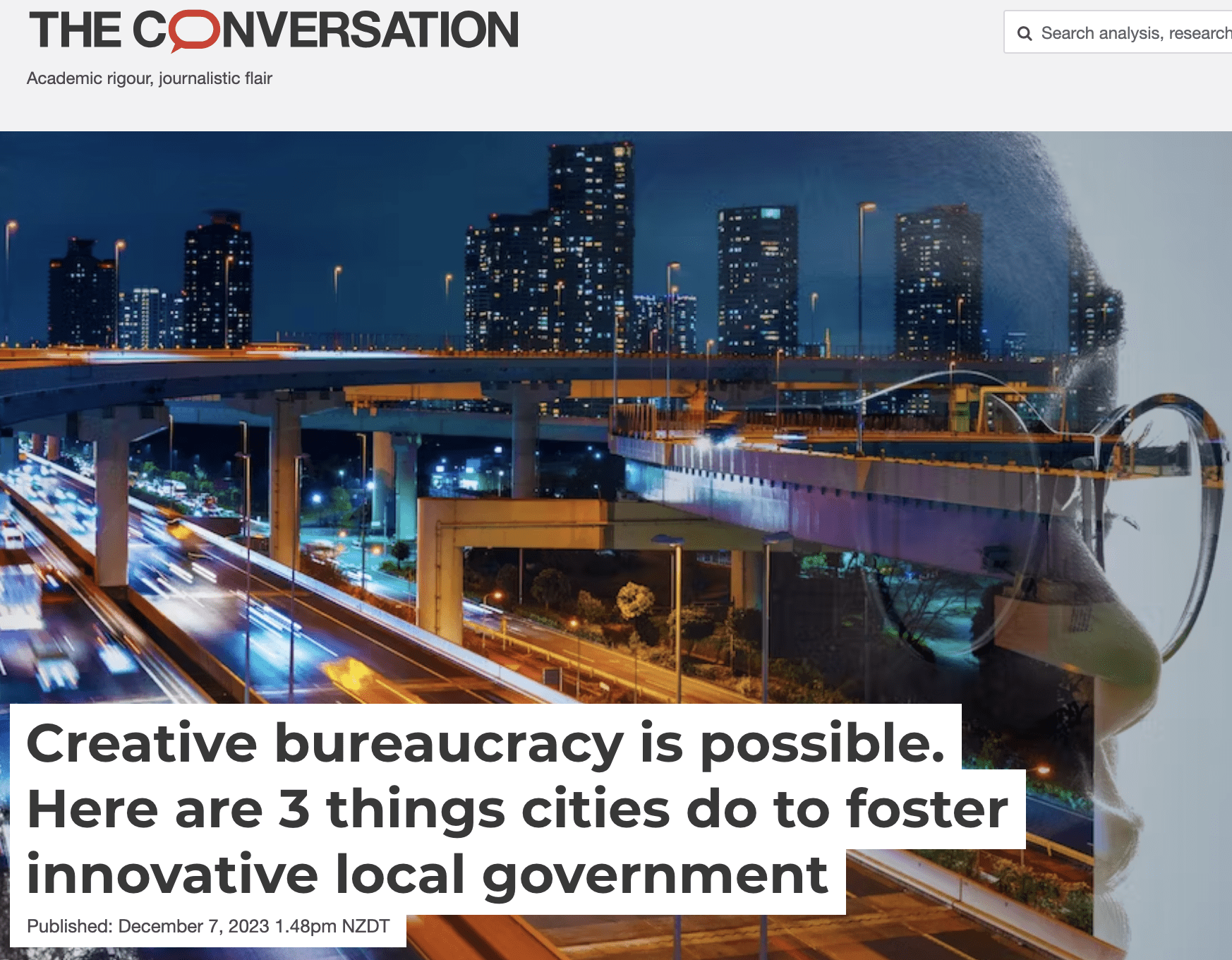
3rd Oct 2023
PEP organiser, Tom Baker, co-authors a piece on the growing interest from governments around “mission” approaches to governmental challenges
You can read the article in The Policy Maker here
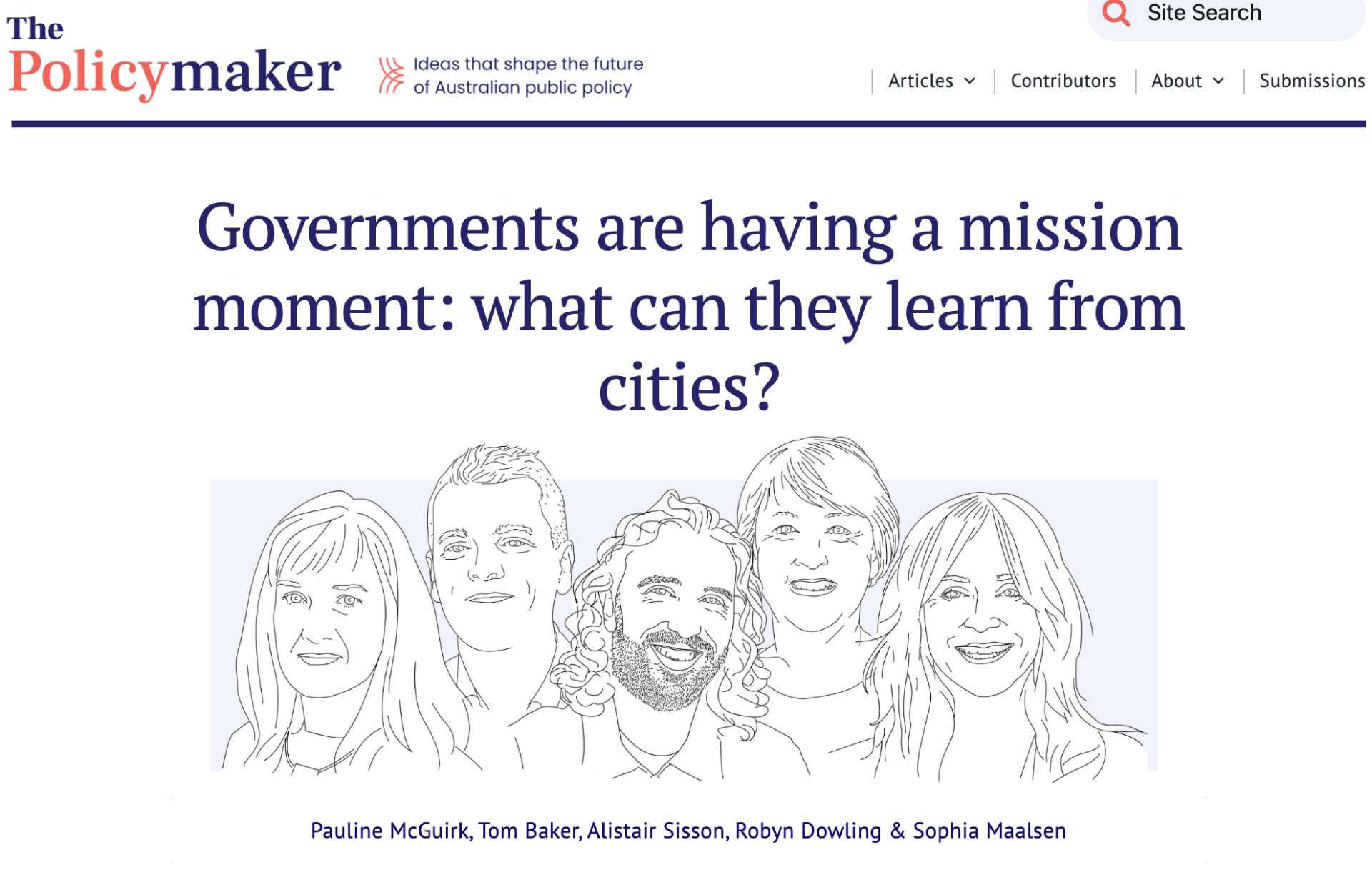
32st Aug 2023
PEP members lead New Zealand Geographer Special Issue on Antipodean More-Than-Human Geographies
We’ve had a great response to the Special Issue just published in the New Zealand Geographer featuring 9 articles and commentaries on the topic of more-than-human geographies. This issue was guest edited by a group from PEP/School of Environment—Nikolai Siimes, Emma Sharp, Alice McSherry, and Kenzi Yee—with 5 of the papers coming from PEP authors (see below for details).
Many of the papers in this special edition were presented in various forms at the New Zealand Geographical Society Conference in November 2022 and now it’s great to see them in print. Congratulations to all the authors!
Antipodean more-than-human geographies: From the edges by Nikolai Siimes, Kenzi Yee, Alice McSherry, and Emma Sharp
Managing ubiquitous ‘forever chemicals’: More-than-human possibilities for the problem of PFAS by Eleanor Buttle, Emma Sharp, & Karen Fisher
Having a drink with awkward Brett: Brettanomyces, taste(s) and wine/markets by Nikolai Siimes
Complexities of care in insect-human relations by Kenzi Yee & Emma Sharp
Finding our place at the table: A more-than-human family reunion by Alice McSherry & Georgia McLellan

13th Aug 2023
Visiting professor Brett Christophers is interviewed on Q+A by Jake Tame over BlackRock’s Climate investment in Aotearoa
You can read the article and watch the clip here
Aug 11, 2023
Visiting Professor & Auckland Geography alumnus Brett Christophers returns to NZ to invigorate discussions on asset ownership
At the invitation by PEP organisers, Profesor of economic and social geography at Uppsala Univeristy in Sweden and Auckland Univeristy Human Geography alumnus, Brett Chirstophers, returned to Aotearoa for a series of talks on his new book. He prompted discussion at the recent Cumberland lecture on how we might attend to the dominant asset ownership regime unfolding globally and the key actors and processes to be aware of in the New Zealand context. A brilliant article on Brett’s work is written here by Dan Hitchens. Brett’s visit concided with a major announcement this week of an agreement between the New Zealand government and major asset management and finance company BlackRock to invest $2 Billion in green energy infrastructure. Brett has since been on a number of the major New Zealand news outlets providing a much needed critical take. You can read all about it here.
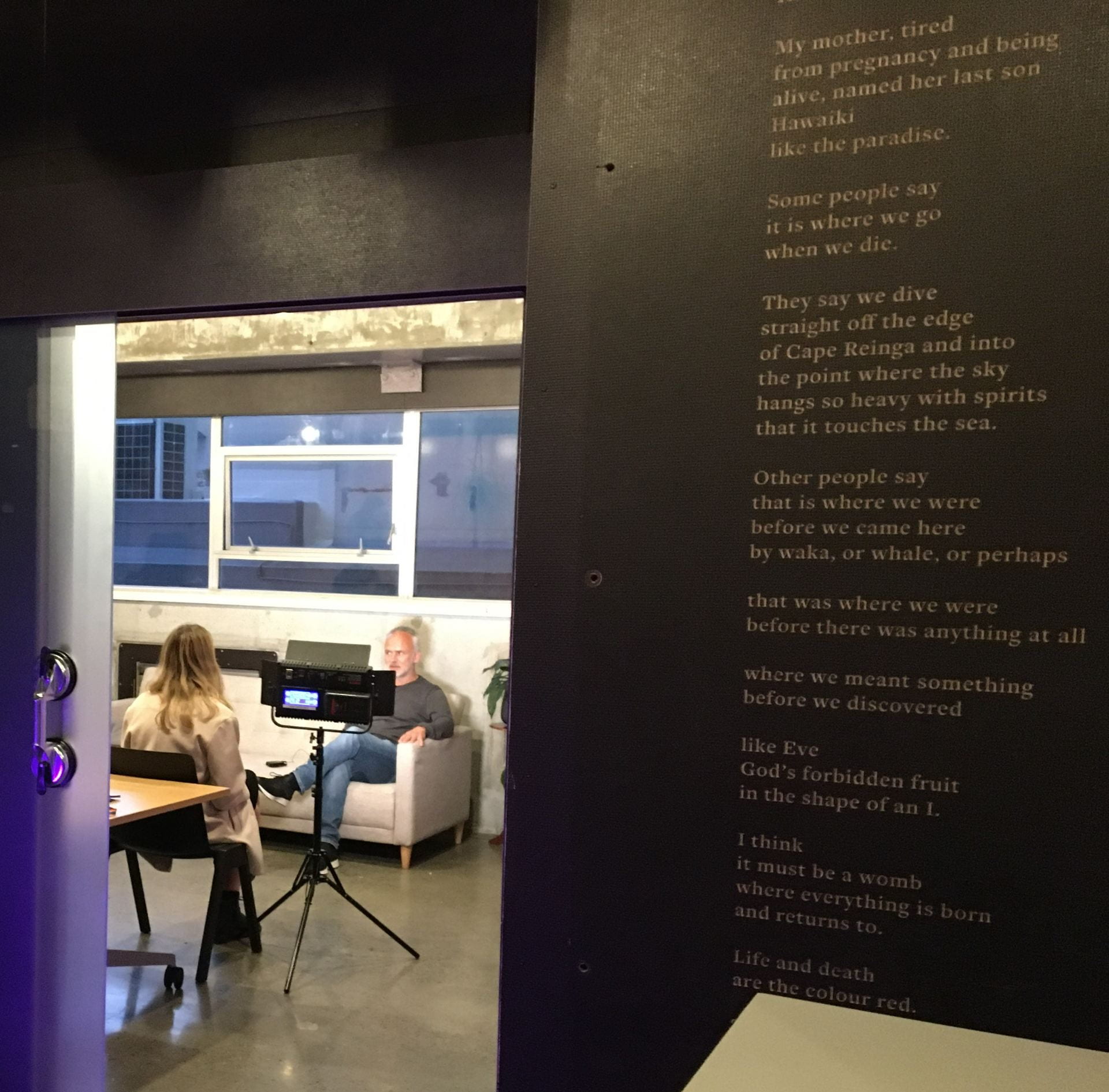

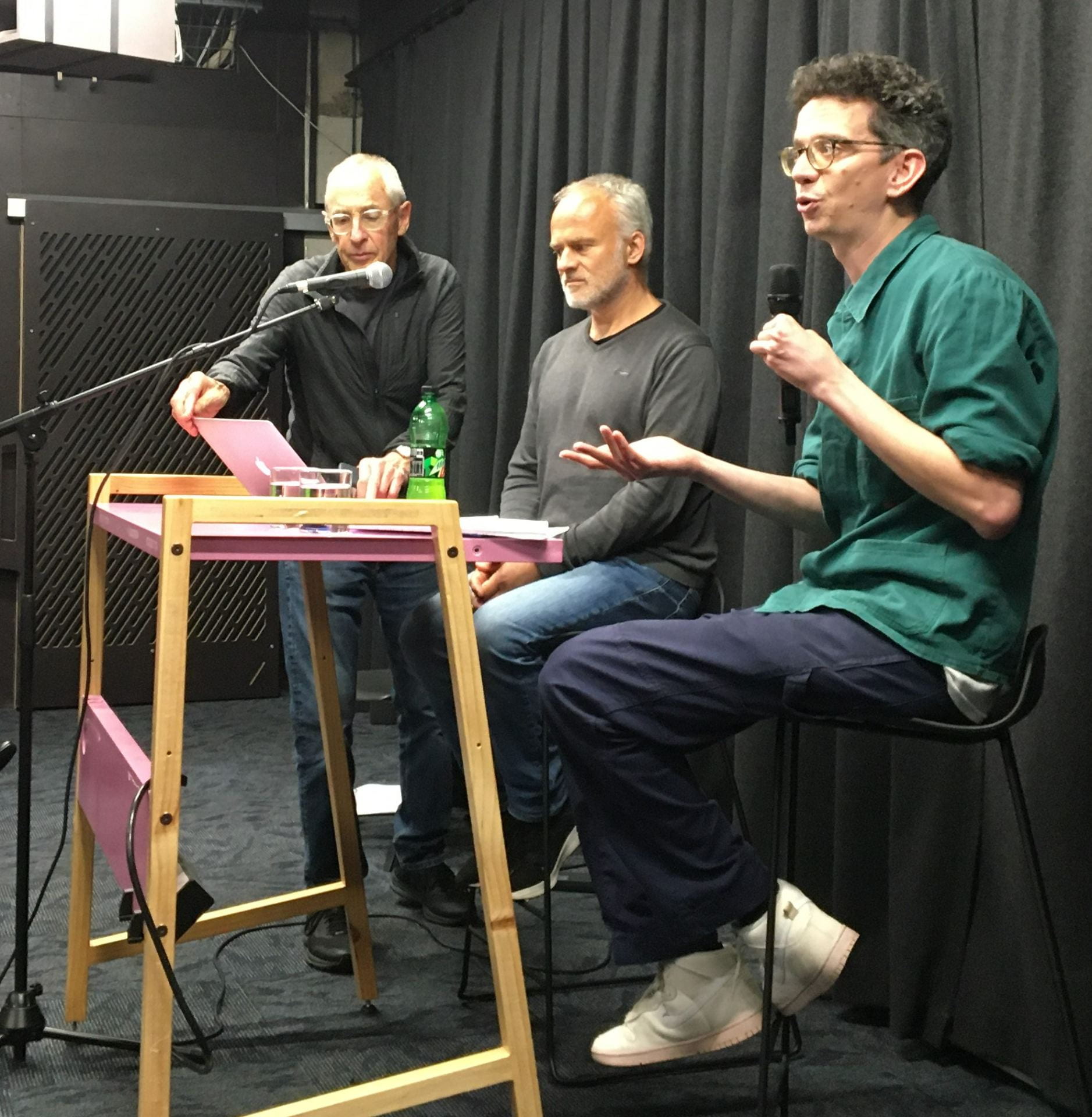
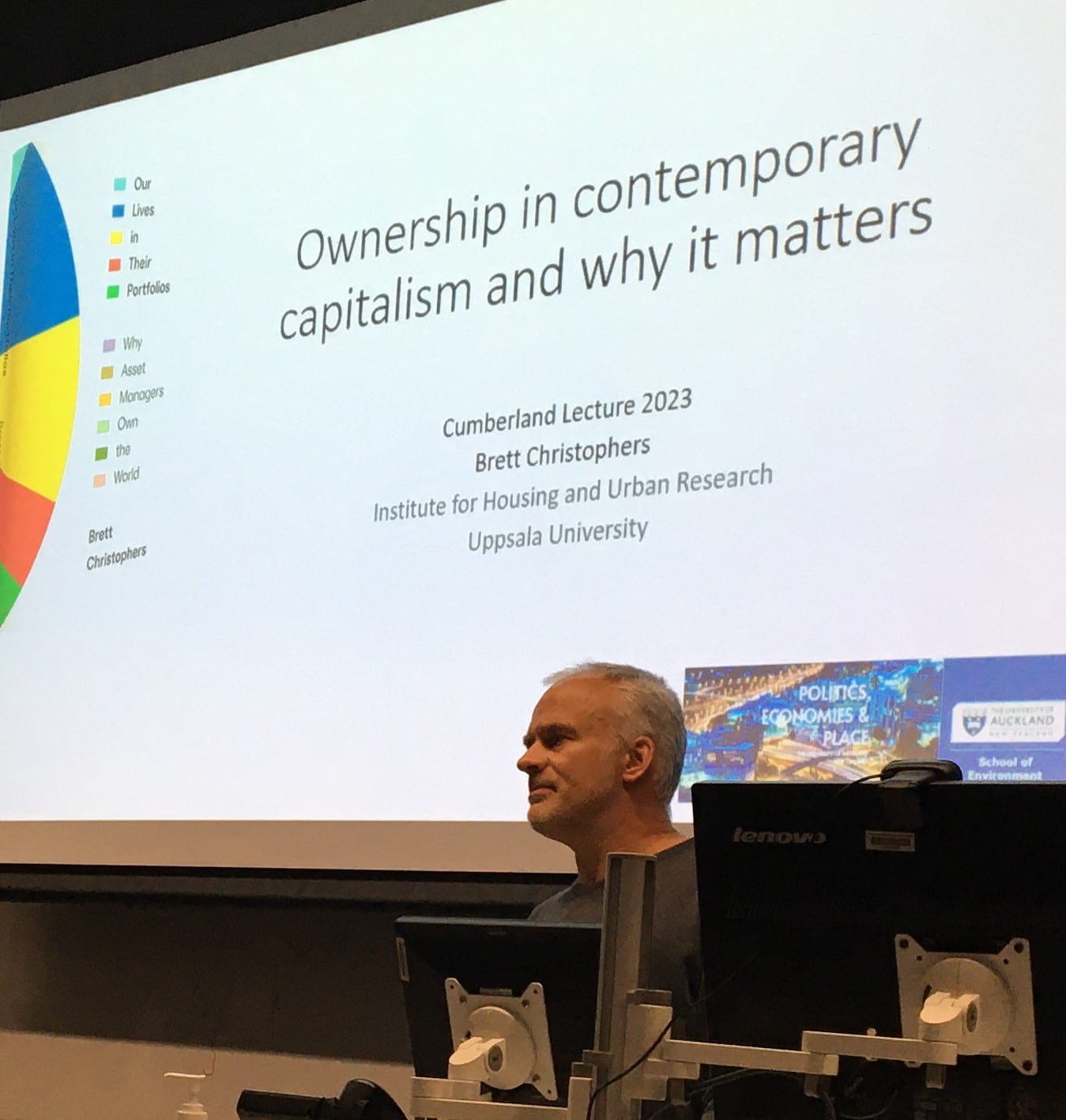
Jun 20, 2023
Catch Salene Schloffel-Armstrong’s latest segment covering ghastly rental stories on 95BFM
You can catch the recording here along with a range of helpful resources for renters
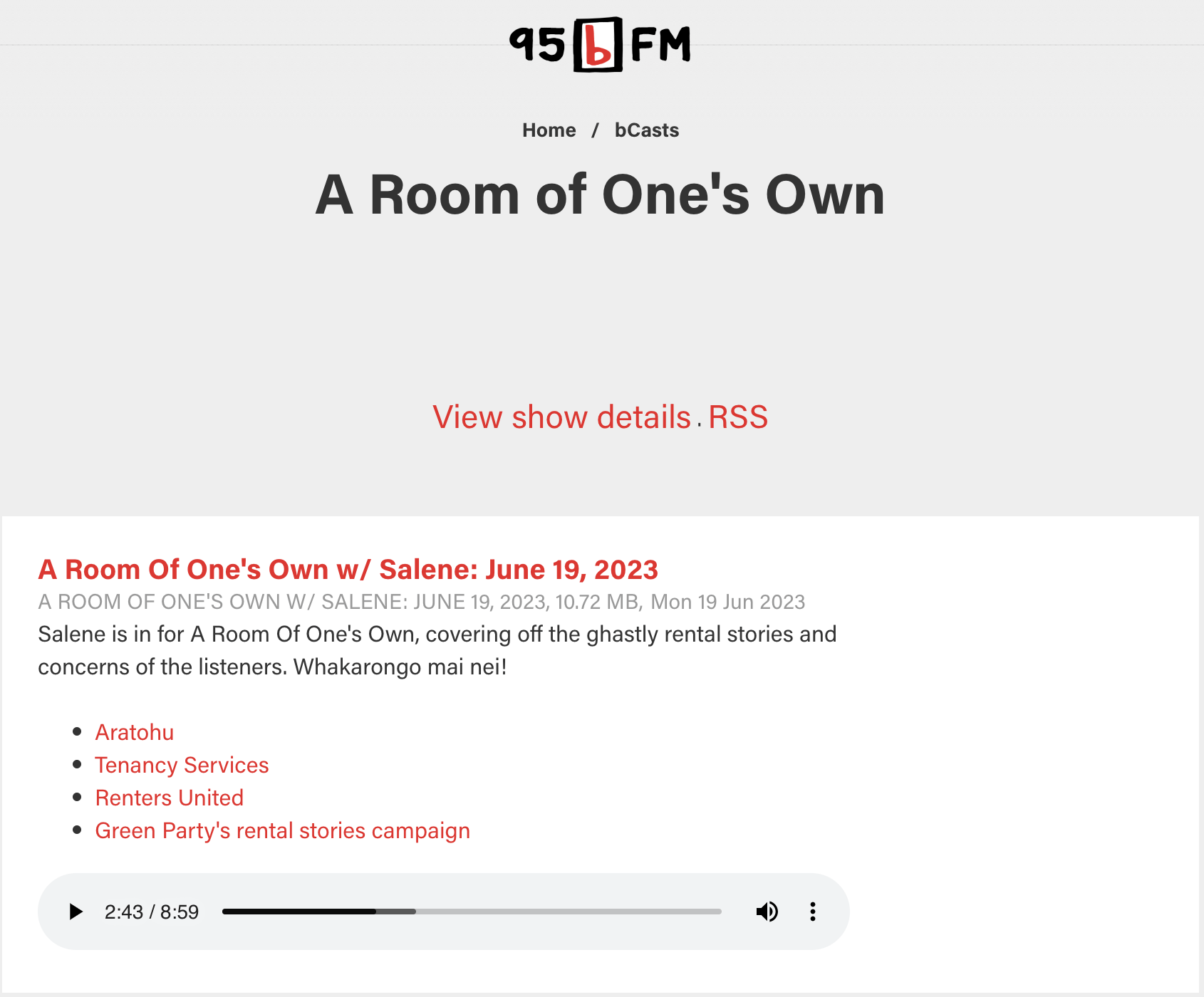
July, 5 2023
Tom Baker examines the Green Party’s recent “Pledge to Renters” and the debate surrounding rent controls
” A big part of the problem with New Zealand’s rent control “debate” is that it misses these kinds of nuance. A better discussion would involve looking at what kind of rent control might work, for what purpose, and with what trade-offs.” – Tom Baker
You can read all about it here
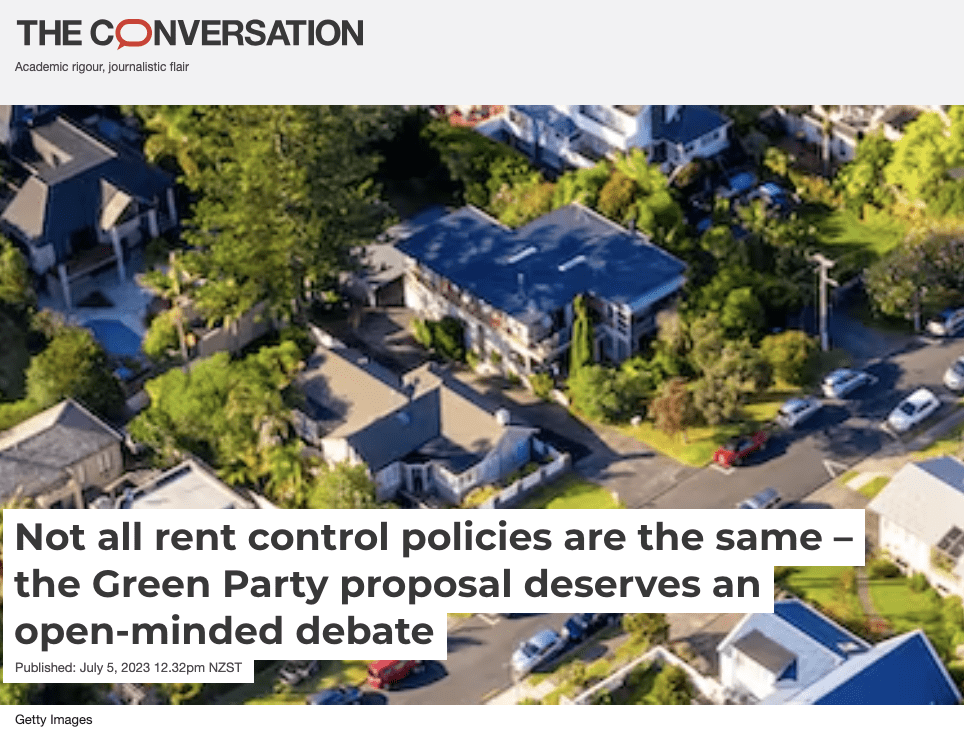
Jun 20, 2023
Catch Salene Schloffel-Armstrong’s latest segment covering ghastly rental stories on 95BFM
You can catch the recording here along with a range of helpful resources for renters

Jun 20, 2023
Nick Lewis responds to divisive article on regenerative farming
In repsonse to a heated opinion piece on regnerative farming and the naivety of student activism published in Stuff by a director of Dairy NZ, Jacqueline Rowarth, Nick Lewis writes back with a challenge to Rowarth’s business-as-usual approach. The comments rolled in fast for this piece. You can read all about it here
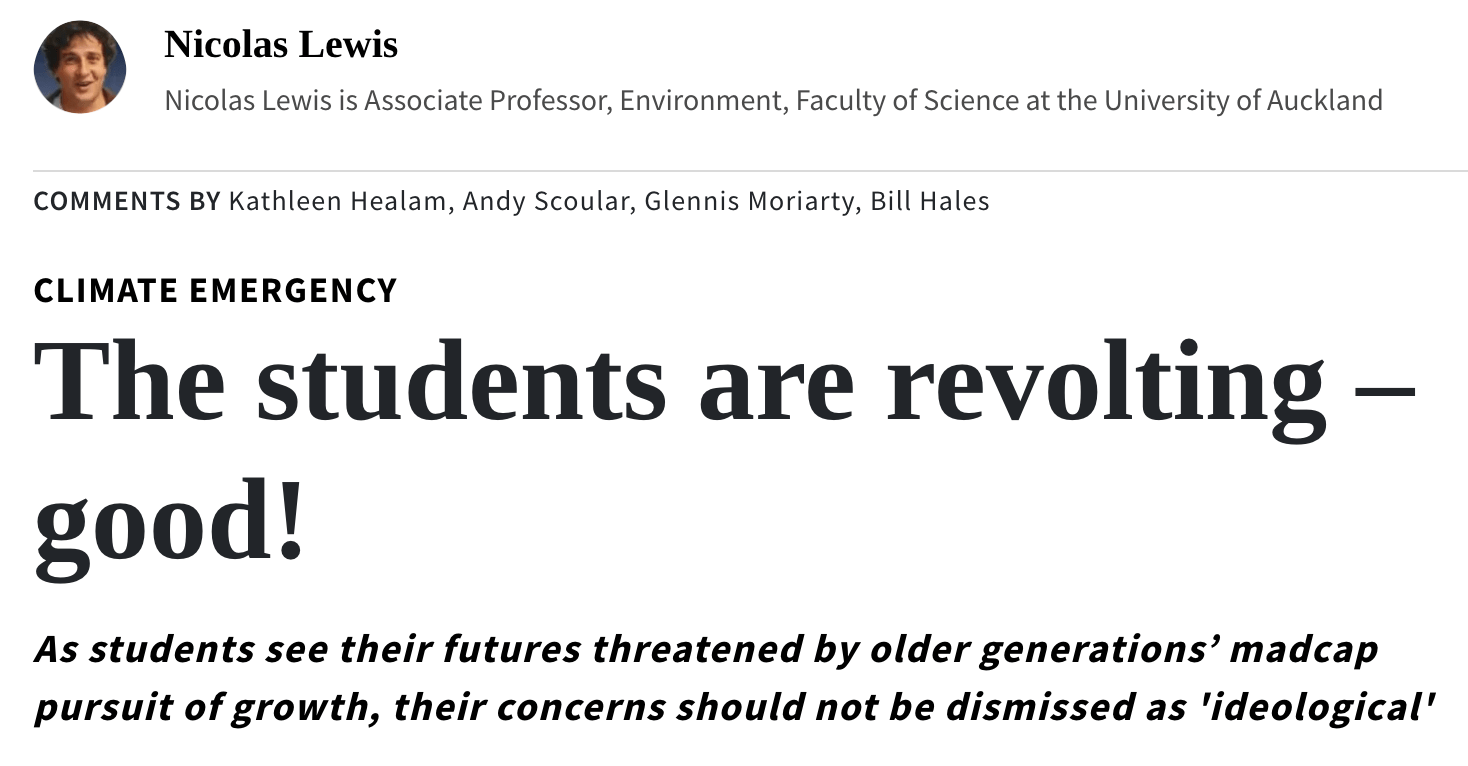
Oct 28, 2022
Nick Lewis and Ingrid Petersen check out Green Wave
In early October Ingrid Petersen and Nick Lewis were invited to attend the launch of GreenWave NZ. Inspired and developed with technical assistance from GreenWave and its founder Bren Smith, GreenWave NZ is a community-based regenerative ocean farming initiative
|
/
www.greenwave.org
|
The initiative involves local mussel and seaweed farmers, environmental consultancy EnviroStrat, green investors, iwi entities, and long-time wild seaweed gathering whanau-based enterprise Agrisea. The initiative emphasises ecological restoration and cooperative marketing and research activities within the wider GreenWave community. It is centred on creating viable community economy model from seed to sale.
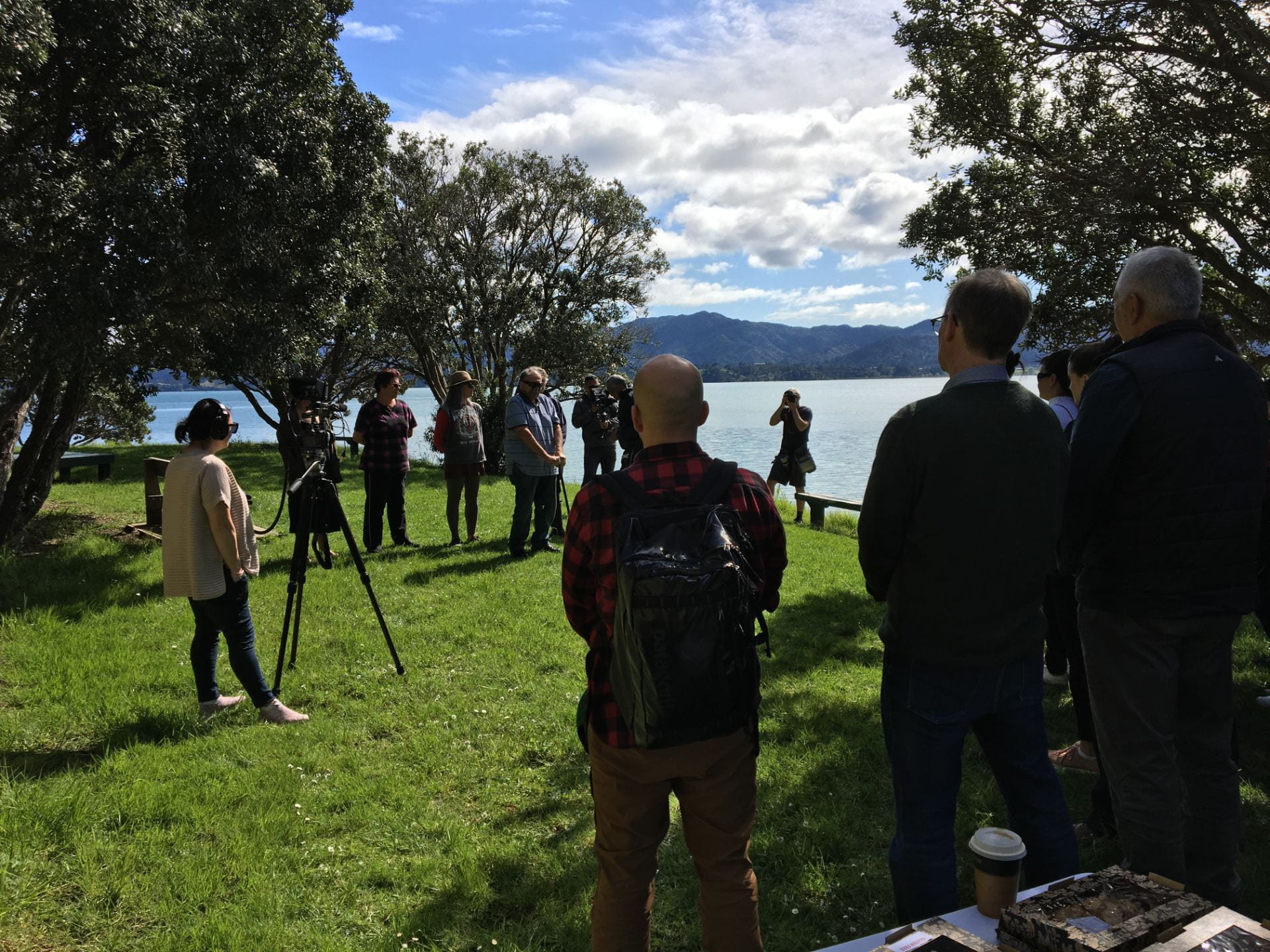
Aug 11 , 2022
Nick Lewis and Tom Baker make the case for bolder government
Having started a major Marsden Funded project on the role and influence of consultants in Aotearoa, Nick Lewis and Tom Baker weigh in on the Auckland Council mayoral candidates and make the case for a more ambitious council. They ask what the mayoral candidates might do leading the largest resourced council in Aotearoa and how they might use its finances and skills for the betterment of Auckland. The article is published in Stuff found here
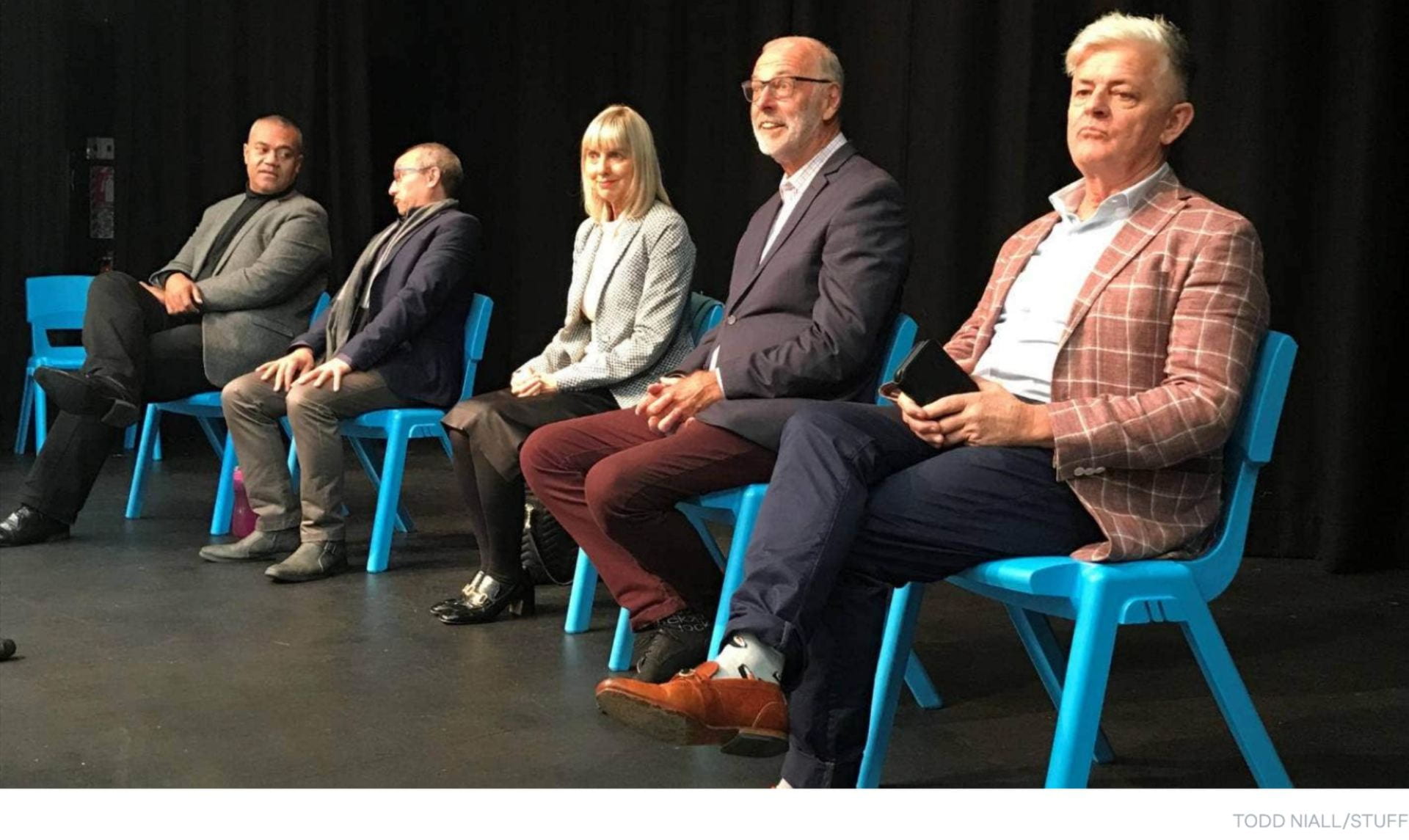
July 17 , 2022
Nick Lewis is interviewed on emerging work assembling New Zealand’s Blue Economy
Nick draws on his insights as lead for the Blue Economy arm of the Sustainable Seas National Science Challenge and makes the argument for doing economy differently to show that the our relations with the ocean need not be extractive. You can read the article by Andrea Vance here.

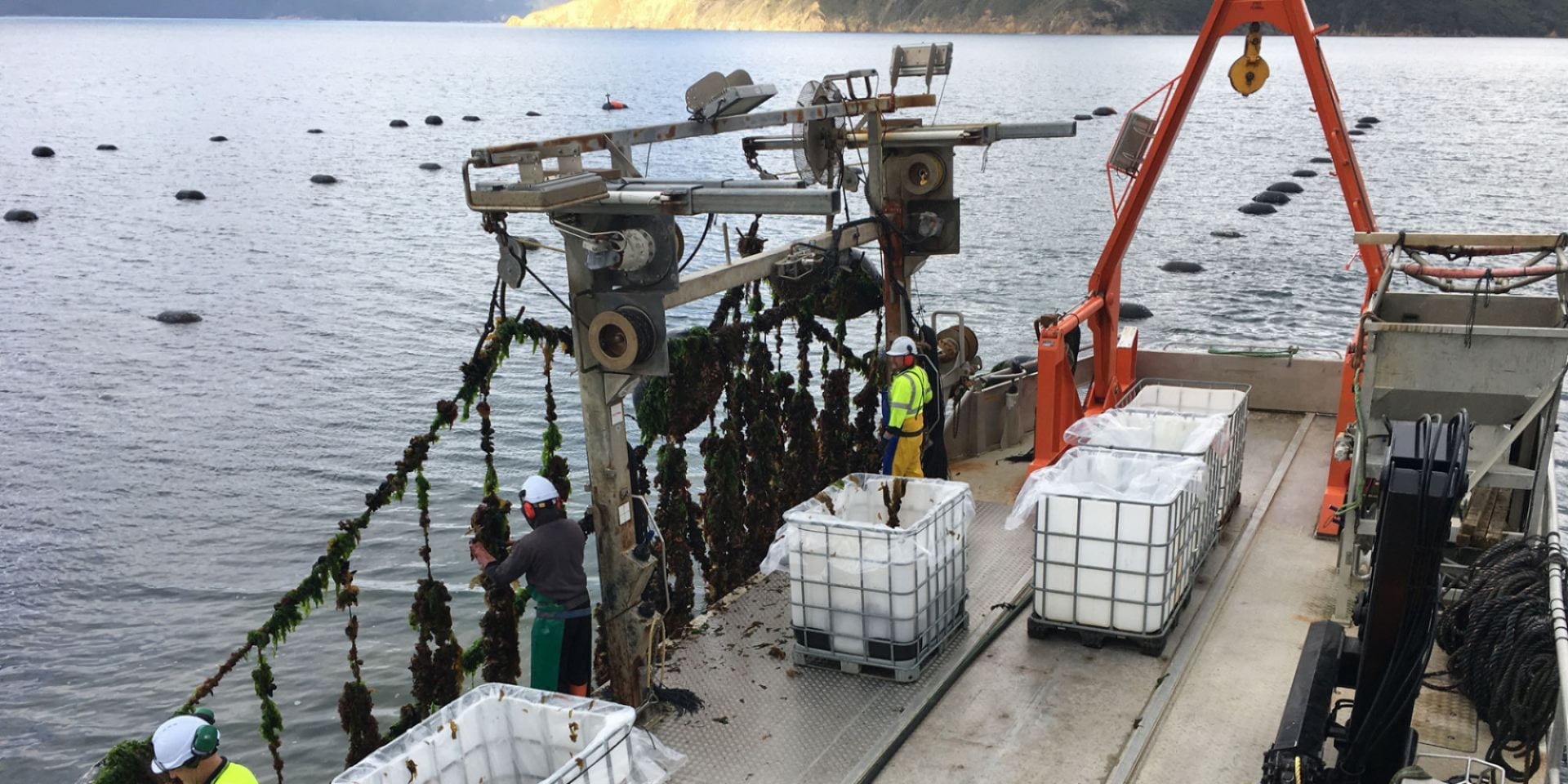
JUNE 17, 2022
Nick Lewis talks about the prospects of establishing a thriving blue economy in New Zealand
The notion of a blue economy has exploded onto international policy agendas in recent years. Rarely used less than five years ago, the idea of a blue economy is now a firmly entrenched in the lexicon of national and international development. It is used widely to refer to anything from accelerating the exploitation of oceanic resources to a deep green transformation of how humanity uses coastlines and oceans to support livelihoods or an active project to return the coasts and oceans to community ownership. What, however, does it, or might it mean for New Zealand. Nick Lewis has been talking to various public groups about the question and how New Zealand might go about making itself a distinctive blue economy:
Nick’s talk can be found here: https://www.youtube.com/watch?v=iz_gDKwtnnU
The United Nations Association of New Zealand
The New Zealand public in the Sustainable Seas Te Ao o te Moana webinar series
https://www.youtube.com/watch?v=qoDYWBg1G2M&list=PLcP5oYqZClK4XY8_NQf6ZsFSRKVkN85-0&index=3
Stakeholders and interested members of the public in the Sustainable Seas 2020 Webinar series
https://www.sustainableseaschallenge.co.nz/public/tools-and-resources/building-a-blue-economy/
The World Wildlife Foundation and Department of Conservation ocean resilience webinar series Changing Tides: Te Tai Tōrua. The workshop was titled: Marine Protection and Restoration in a Sustainable Blue Economy (see report https://wwfnz.awsassets.panda.org/downloads/tai_torua_workshop_report.pdf)
JUNE 14, 2021
EMILY STEVENS, TOM BAKER & NICK LEWIS DISCUSS THEIR RESEARCH IN NEWSROOM
Greyhound ‘rehoming’ has become a critical component of the racing industry’s social licence, but what we don’t know is how poorly equipped many ex-racing greyhounds are to cope with the expectations placed on them as pets
Negative reports of greyhound racing in New Zealand have prompted Sport and Racing Minister Grant Robertson to launch a review into the practice, while MP Chloë Swarbrick is set to propose a private member’s bill that looks to ban it entirely.
Greyhound ‘rehoming’ – the practice of rehabilitating former racing dogs into pets once they are no longer of economic value to their owners and trainers – has become a critical component of the racing industry’s social licence, after consistent reports of adverse animal welfare since 2013.
APRIL 3, 2021
TOM BAKER ON RNZ’S NINE TO NOON
There’s been a proliferation of crowdfunding iniatives particularly seeking donations to pay medical treatment, and new research provides information about how the key to success can involve how crowdfunding campaigners market illness to best capture the attention of potential donors. Campaigns for personal health expenses are rapidly growing globally but it is also a feature in New Zealand as a gap filler for people trying to access the stretched public health sector. One of the researchers, Dr Tom Baker is a University of Auckland senior lecturer in human geography – and he says the results of the study show it is difficult to get people to donate money for someone they don’t actually know.
Click on this link or listen below.
APRIL 28, 2021
CAITLIN NEUWELT-KEARNS & TOM BAKER DISCUSS THEIR RESEARCH IN THE CONVERSATION
How crowdfunding campaigners market illness to capture the attention of potential donors
Liam’s* crowdfunding campaign page is direct: his “sole purpose is to survive”. Before his diagnosis with inoperable brain cancer, Liam was a “healthy, fitness and sports minded 44-year-old, [who gave] his time and skills away freely by being a regular at charity events, fundraising for a number of organisations and more recently sponsoring amateur athletes”. Holly, Liam’s friend, caregiver and now crowdfunding campaign manager, appeals to the crowd: “It’s time for us to come together and help this amazing man out.” This narrative may be familiar — it provides a window into the high-stakes world of medical crowdfunding. In our new research, we explore who the people behind these campaigns are and how they work to capture the crowd’s attention in a competitive environment. Read more
APRIL 28, 2021
TOM BAKER SPOKE ON 95bFM
The Complications of Crowdfunding w/ Dr. Tom Baker
In a recent study, it was found when it comes to crowdfunding campaigns, not only is a large amount of pressure place on those fundraising for medical purposes, but there are also certain biasies which can determine how successfula campaign is.
To understand why people campaign, what makes a good campaign, and what some of the stresses are, James talks to Dr. Tom Baker, one of the authours of the study about what was found. Listen here!
MARCH 11, 2021
SALENE SCHLOFFEL-ARMSTRONG PUBLISHED AN ARTICLE IN THE SPINOFF
Wellington Central Library has been at the centre of an increasingly bitter dispute in recent weeks, after the city council voted to sell off part of the library building as office space. In response to loud and wide condemnation, several councillors had a change of heart and the library was given a reprieve. Why was the debate over a small part of this single library building – whether the current structure or an imagined future building – so polarising and emotive? Read more













